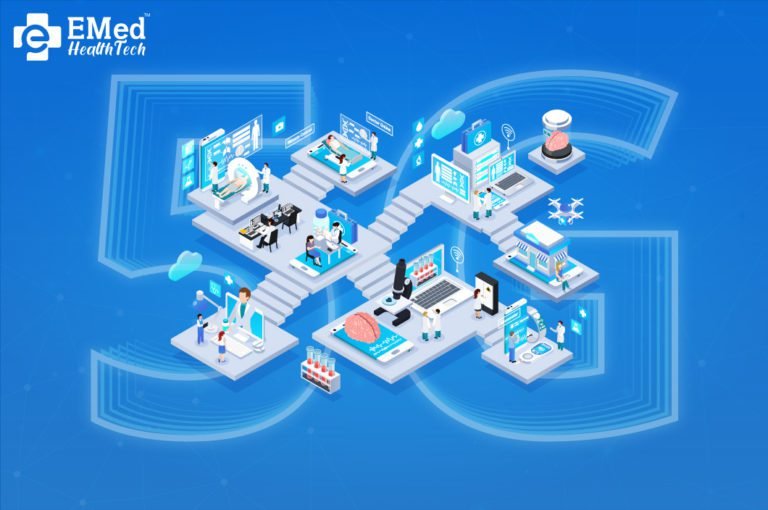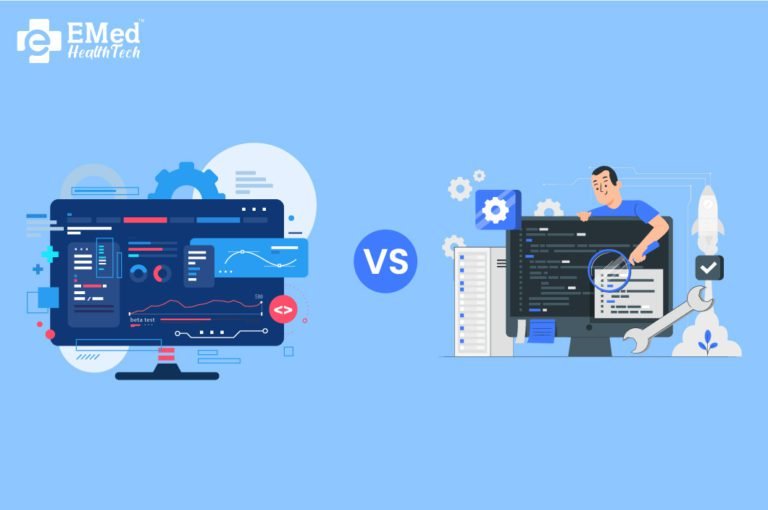Ami Kothari
Healthcare applications and healthcare software are slowly but surely becoming an essential part of the modern healthcare system. From mobile devices to wearables that track vitals, they are being fed with metrics that analyze and provide accurate feedback. These are linked to healthcare software and healthcare app development that give users information on their general well-being.
The usage of healthcare apps that are linked to the mobile phone or wearables also called health apps in the past year has seen a spike since the onset COVID pandemic in 2020. A worldwide spike of 65% was noted in the download of healthcare apps according to Statista. However, this is not a one-time event as the healthcare apps market had a massive five-fold increase from $21billion in 2016 to $100 billion in 2021. This estimate will go up to $189 billion by the year 2025.
With surging demand for healthcare applications and software, businesses are striving every day to improve on existing apps and get a foothold in the already vast market.
With the demand for healthcare apps and software rising, there comes an equal demand for healthcare software developers to create such apps. But, it can be difficult to find the right developers from a sea of candidates.
In this blog, we offer some insights on what you should keep in mind while hiring a software developer.

1. Outsource to a third-party healthtech team or hire your healthcare developer team.
The matter of whether the team has to be outsourced or employed in-house has its own sets of advantages and disadvantages. Let’s look at them.
Outsourcing – Outsourcing is advantageous as it lessens the expenditure by a large portion compared to in-house employees. There is no process like hiring, training, onboarding, or training to be part of the company. You can also pick a team from virtually anywhere. This gives a huge talent pool at your disposal.
The disadvantage of outsourcing is that there could be issues of time zone differences and language barriers. This could diminish the quality of the communication and hence affect the outcome.
Hiring in-house healthtech employees– The advantage of an in-house team is that there is stronger communication of your ideas, expectations, and feedback on the project. The in-house team would also give you undivided attention compared to outsourced staff. It also negates the disadvantages that outsourcing has in terms of barriers of language and time.
The disadvantage of hiring in-house healthtech employees is that the costs of hiring, employing, and providing the technological infrastructure can be exorbitant. You would also have to hire from local talent which would cut down your chances of finding that perfect fit.
2. Where can you find healthcare software developers?
Here are a few places you can start your search for software developers for a healthcare app.
Job platforms like Upwork and Freelancer have a large pool of talent that is actively looking for job opportunities.
Software Development companies that specialize in healthcare applications. You can find them on ratings and reviews platforms. A thorough look at their previous works can help you understand their mettle and performance. Platforms like Clutch, Madeline, and GoodFirms are good places to start looking.
3. Check portfolios for healthtech projects
Another important aspect to keep in mind while hiring a development team for a healthcare app is to look for a strong portfolio with previous work experience in the healthcare app industry. Since there are a lot of compliance and regulation issues to take care of while developing healthcare apps, a prior experience in the niche is always a plus.
4. What to look for in a healthcare software developer?
The size and scale of your project would put you in a position where you cannot take many risks. It is an absolute must that you do a thorough skill check before hiring a candidate, whether they are outsourced or employed in-house.
Some of the hard skills a candidate should have can be summed up in the given list.
- Interoperability in Healthcare with integration standards no less than Health level-7.2.x. It would be a plus to know standards such as ANSI X12n 5010, NCPDP SCRIPT, DICOM, and HL7 v3 CDA.
- Well-versed in semantic vocabularies such as ICD9/10, RxNorm, LOINC, and SNOMED-CT among others.
- Knowledge of Integration frameworks like HITSP or Healthcare Information Technology Standards Panel and IHE or Integrated Healthcare Enterprise.
The candidate should also have technical skills such as:
- Knowledge of Big data AI to leverage the existing healthcare data from EHRs and insurance companies.
- Well-versed in cybersecurity measures, knowledge of libraries, secure coding practices, and strong encryption tools.
- Ability to use third-party integrations to optimize and streamline workflows. This requires knowledge of integration standards such as the HL7 FHIR, REST, and SOAP frameworks.
The next most required skill is the knowledge of domain concepts. Some of them include:
- Knowledge of regulatory aspects like HIPAA, FDA, ARRA HITECH, CCHIT, etc, depending on the jurisdiction under which the application is.
- Well-versed in operating revenue cycle workflows.
The candidate must also be screened for soft skills such as:
- Ability to work in teams and strategize according to the need of the healthcare project.
- Interpersonal skills of healthcare technologies.
- Knowledge of the usability and applicability of healthcare IT solutions.
Ready to Hire a Healthcare Software Development Team?
Before you hire healthcare app developers from a healthcare IT solutions company, it is prudent to have a thorough check on the previous projects they have worked on. This is the ultimate litmus test for an IT solutions company. The final product speaks volumes about their services. It is also necessary to check if your business needs are compatible with the services the IT company offers.
With that, we’ve rounded up some of the most critical things to consider when hiring a healthcare app development company. If you’re on the lookout for a reliable healthcare app developer, EMed HealthTech ticks off all the boxes.
When you hire EMed HealthTech as your healthcare software developer, you are investing in a strong team that is well-versed in all the relevant aspects of software development mentioned above. You also have the option to choose from remote dedicated healthcare developers, offshore healthcare development teams, or onsite healthcare app developers. Our previous healthcare IT projects are available in our portfolio, which speaks for itself.
To know more about hiring healthcare app developers, contact us today or simply fill out our online contact form and our expert team members will get in touch with you.
Related posts

Hire Healthcare Developer
A Comprehensive Guide to Hire Healthcare Software Development Company
A Comprehensive Guide to Hire Healthcare Software Development Company
Read more
Digital Healthcare
10 Benefits of 5G Launch on Healthcare in India
10 Benefits of 5G Launch on Healthcare in India
Read more
Healthcare Software
Custom Healthcare Software vs. Readymade Healthcare Software
Custom Healthcare Software vs. Readymade Healthcare Software
Read more







